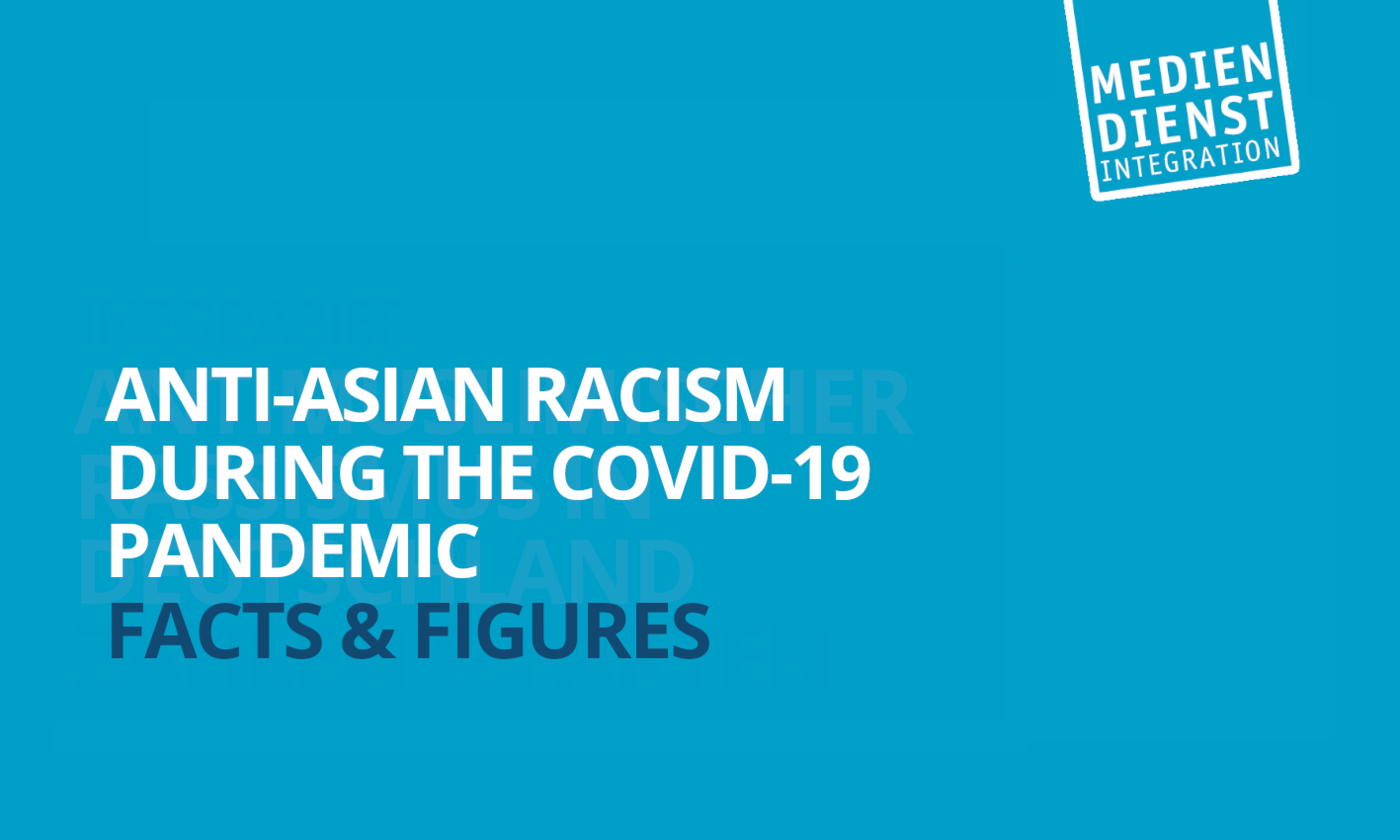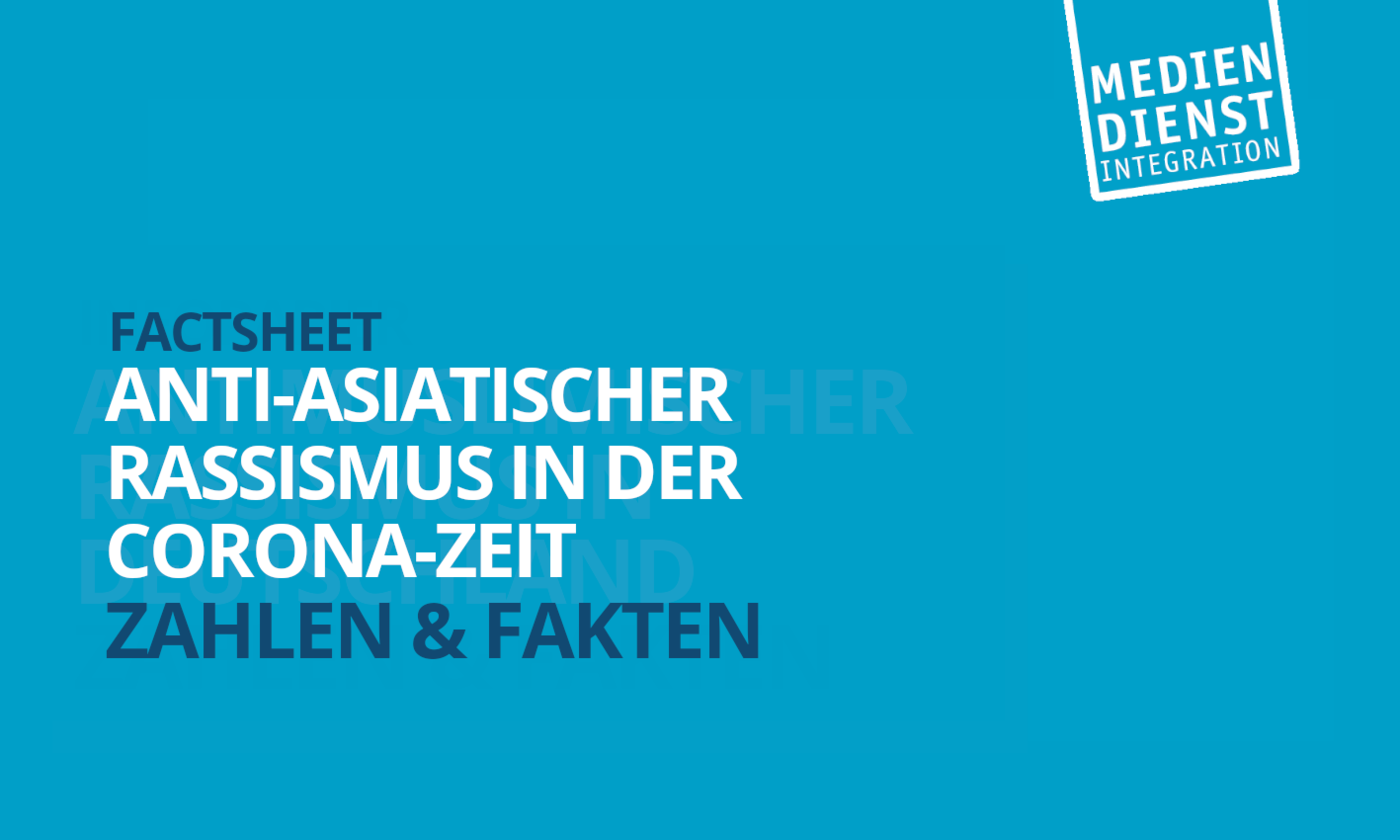Since the outbreak of the COVID-19 pandemic, German-based Asians, Germans with Asian migration history and people assumed to be Asian have reported experiencing an increase in anti-Asian hate.
These findings originate from two recent studies conducted by the German Centre for Migration and Integration Research (DeZIM), Humboldt Universität and Freie Universität: One survey of roughly 4,500 participants across Germany measuring the majority-population's attitudes (in part representative), and another survey with persons of Asian migration history.Quelle
Most commonly, those affected reported non-verbal discrimination through gestures or facial expressions (74 percent), but offenses also included verbal (62 percent) or physical abuse (11 percent), such as being sprayed with disinfectant. 27 percent reported exclusion from institutions such as hospitals or doctors' practices.
Reported anti-Asian racism incidents most frequently occurred on the streets (62 percent), public transport (61 percent), but also in educational institutions (12 percent) and the work place (11 percent).
Anti-Asian sentiment in Germany
More than 15 percent of 800 respondents of the population survey believed „Asians were responsible for the rapid spread of COVID-19“. Out of 4,100 respondents who self-identified as White, 10.8 percent declared they „would be uncomfortable to have an Asian as family member“.
While there is little research on anti-Asian racism in Germany, Christoph Nguyen, a political scientist involved in the study, told MEDIENDIENST INTEGRATION that the COVID-19 pandemic exposed pre-existing racism against those perceived as Asians.
Anti-Asian racism is far from a recent phenomenon in Germany: Narratives have ranged from framing Asians as „different“, „dangerous“ and responsible for the spread of diseases, or as „hard-working flagship migrants“. The latter has led to the assumption that Asians do not experience racism.Quelle
Currently, around 1.1 million people with migration history from Asia live in Germany. The main countries of origin are Vietnam, China and India. These figures are only an estimate; however, they offer an approximation as to the number of people affected by anti-Asian racism in Germany.Quelle
Historic continuity of anti-Asian racism in Germany
In 1907, during German colonialism, the German Empire opposed immigration from China due to concerns of importing the „Chinese plague“.Quelle
In the early 1990ies, two large-scale incidents of Anti-Asian racism gained prominence in Germany: two buildings with majority-Vietnamese labour migrant inhabitants in North-East Germany, in Hoyerswerda and Rostock-Lichtenhagen, were attacked by right-wing extremists.
Research: Carten Janke and Caroline Schäfer, translation: Martha Otwinowski



